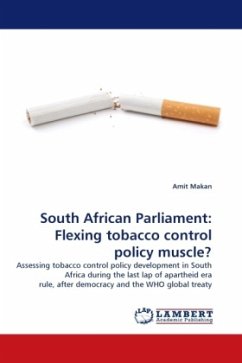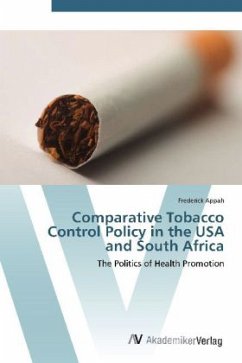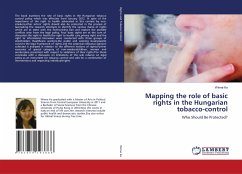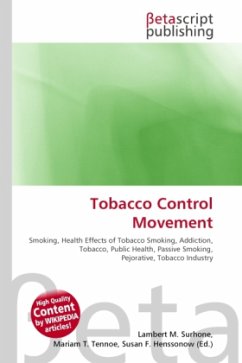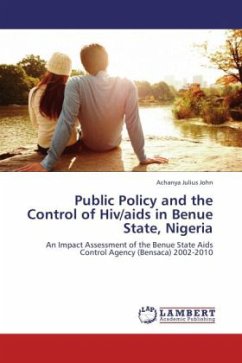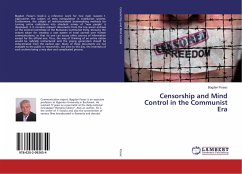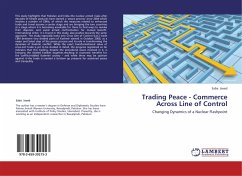Scholars have routinely pointed to the declining policy role of Parliaments' globally and in African democracies, emphasizing the growth of executive power. South Africa (SA) is no exception. Researchers' often accuse this democratic institution of being 'toothless' by 'rubber stamping' executive-initiated legislation. Using the case of tobacco control policy development in SA,the author examines global tobacco policy interactions of the now ruling African National Congress party before its democratically elected win in 1994; and during its continuing majority reign in government and Parliament. Notably, this period includes the time after SA expediently ratified the first ever global public health treaty (WHO FCTC) in 2003, intended to reduce tobacco-related burden of disease. The author observes politically complex policymaking processes in both the upper and lower houses. Most captivating is the intricate power balance of political, business, government, civil society, public health and academic interest groups each trying to compete for 'policy space' in considering this controversial legislation. The author asks whether SA Parliament is as toothless as has been suggested.

